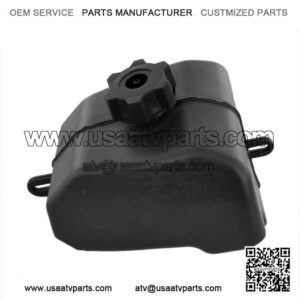1. DRAIN
Drain fuel tank into an approved container.
2. CLEAN OUTSIDE OF TANK
Clean rust and debris from the top of the fuel tank.
3. REMOVE FUEL PUMP
Remove the fuel pump from the tank.
4. SWIRL
Swirl gas tank, pour out remaining gas and debris.
5. CLEAN INSIDE OF TANK
Clean the tank interior with a low-suds soap and water mixture.
6. SWIRL AGAIN
Swirl cleaning solution inside the tank.
7. DRAIN AND DRY
Drain tank and dry with compressed air and/or lint-free cloth.
8. INSPECT
Visually inspect the tank and replace tank if damaged.
9. CHECK IF DRY
Confirm tank is completely dry (approx. 30 min).
10. REFILL
Refill tank with fresh fuel.
Ensure fresh fuel is used with the new fuel pump. This prevents contaminations from going back into the clean tank.
Manually cleaning out your gas tank shouldn’t take you more than an afternoon once you get some practice under your belt. And an afternoon invested in your car is certainly worth it.
WHY SHOULD I CLEAN MY FUEL TANK?
Did you know that most replacement fuel pump failures are due to contamination from the fuel tank? Contaminants in the tank cause the strainer to clog, forcing the pump to pull more current and amperage resulting in a burnout, damaging the new fuel pump that was just replaced. Depending upon the amount of contaminants it is estimated that It can take up to three fuel pumps to clean the tank. Sometimes a dirty fuel tank might not cause the pump to fail, but dirty fuel tanks can also affect your gas mileage and clog your fuel filter.
The original pump went into a clean tank. To ensure the same level of performance, the new pump should go into a clean tank too.
About FUEL TANK
“fuel tank cleaner”
“fuel tank pressure sensor”
“fuel tank repair”
“fuel tank for boat”
“fortuner fuel tank capacity”
“alto fuel tank capacity”


